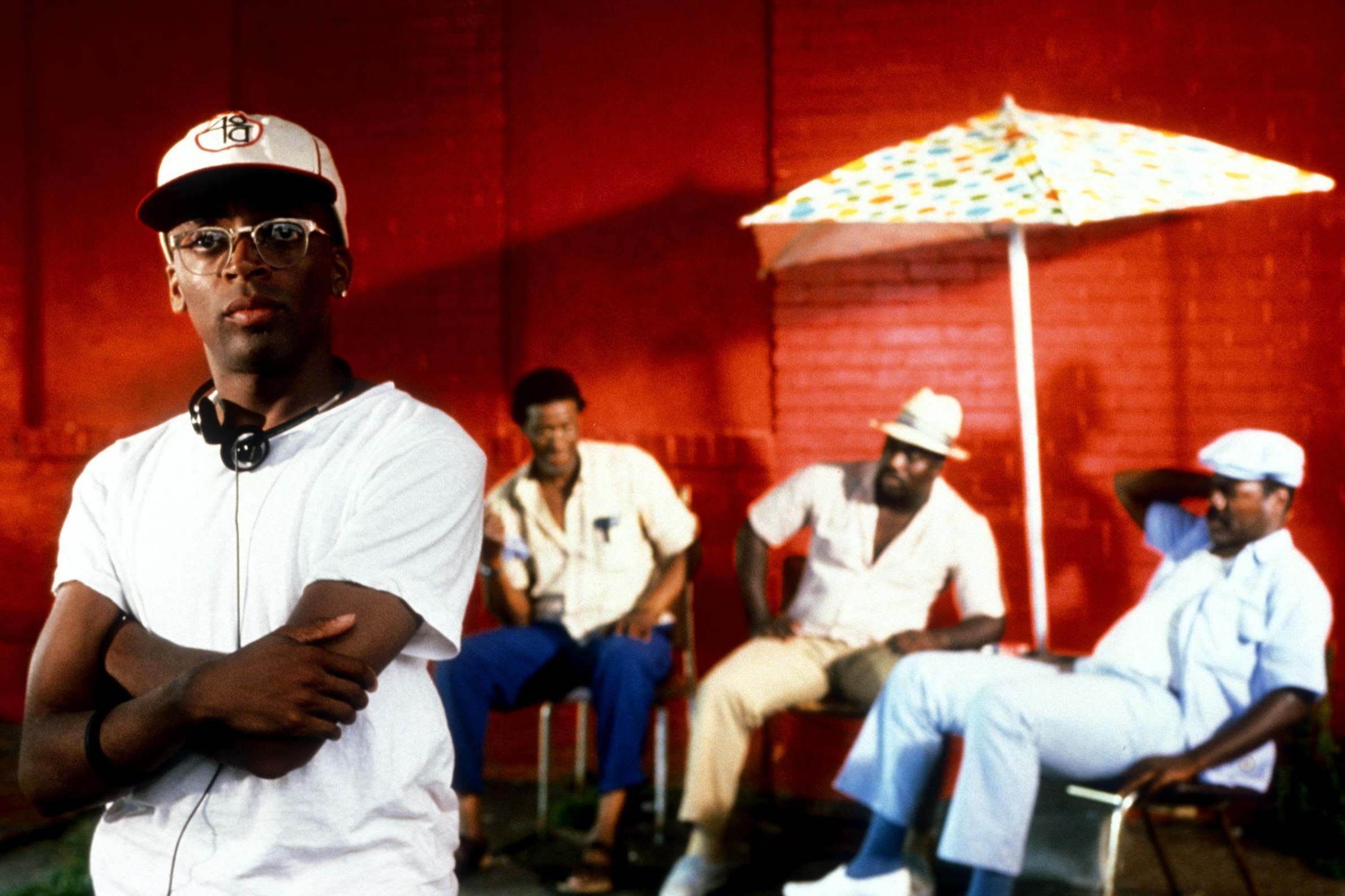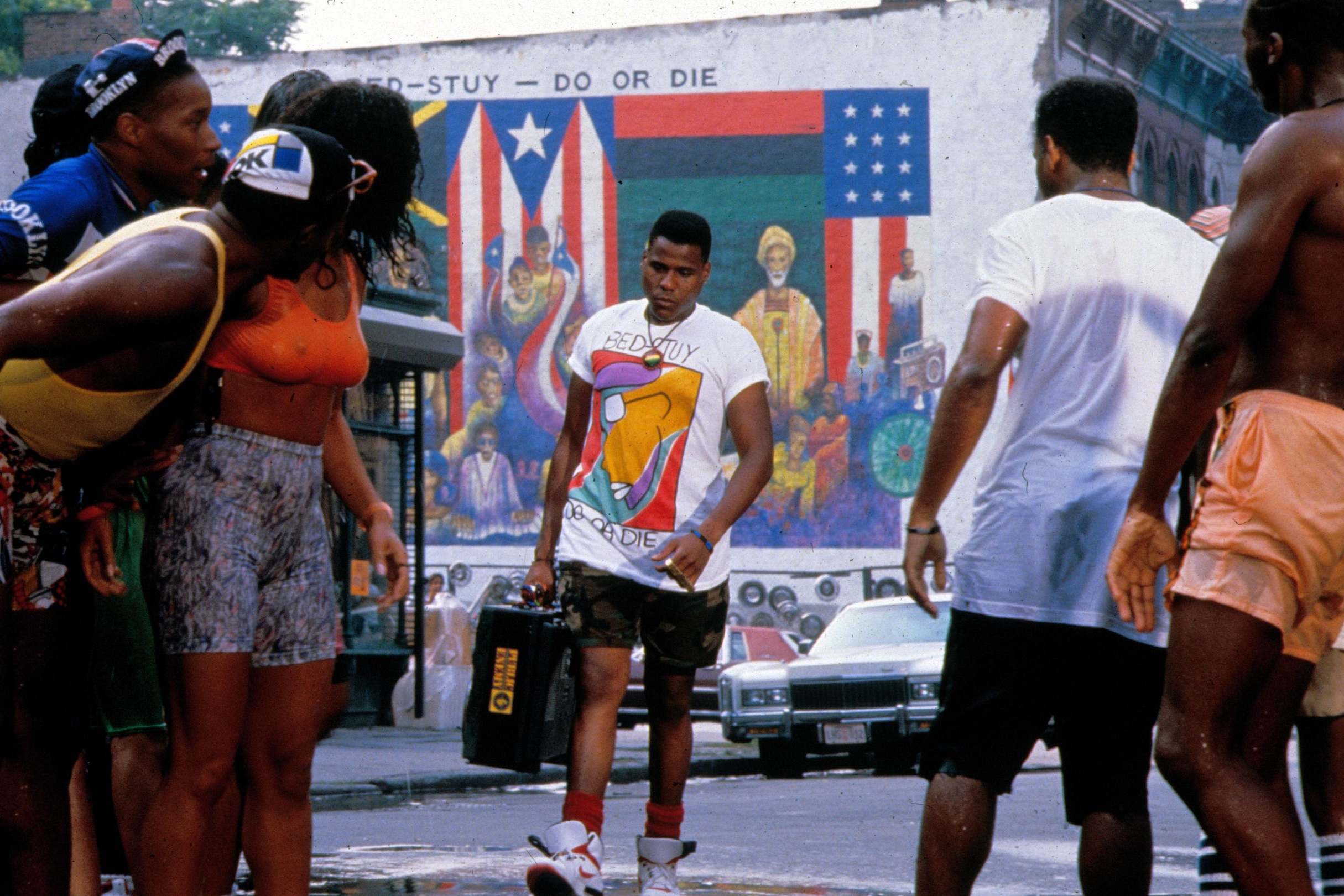On encounters with the police, you could say Spike Lee saved my life
Lee’s films taught me about being a black man in America, writes Lawrence Ware

I was raised by an overprotective single mother. She did her best to prepare me for the realities of being a black man in America, but she also made sure to let me know that not everyone white was a racist. Still, she was terrified of one group of people: the police. And of her son encountering them.
She warned me that the police would treat me differently because, as she put it affectionately, of the “beautiful ebony hue of my skin”. She implored me to never do anything that would raise their suspicions, and, above all, never to drive at night with a white woman in the car. I would nod my head. Yes, yes, yes. But I was a teenager and not given to listening. Her warnings went in one ear and exited the other. I just did not take her seriously. It was the Nineties in Oklahoma, and I was ignorant of the world around me; of what had happened in Los Angeles in 1992. To me, things had gotten better. Then I saw a Spike Lee movie. And I began to understand. It was the first of many lessons his films would teach me.
I was developing into a film nerd. I devoured all the classic films I could, then I began to look at contemporary filmmakers. The first Spike Lee movie I saw – and my first glimpse of his depictions of the violent and otherwise deeply problematic ways that cops interact with black people – was Jungle Fever (1991) in 1993. I was too young to understand it all, but even in seventh grade, the message came through. In the drama, a black architect played by Wesley Snipes falls in love with an Italian-American woman from Bensonhurst, Brooklyn, played by Annabella Sciorra.
I complied with the police. I did exactly what they said. I sat on the curb as they looked through my car. I did not make any sudden movements. I said ‘sir’
The scene that drove home what my mother had been trying to teach me occurs late in the movie. Seeing the two playfully wrestle in the street, neighbours assume that Snipes is assaulting her and call the police. In what I learned was typical fashion for cops in Lee’s world, New York’s finest show up and put a gun to Snipes’ head. My mother’s warnings about driving alone with white women came to mind. I had merely thought she did not want to lose her son to a woman of a different race, but as I watched the film I realised that the world did not take kindly to a black man being with a white woman. With one scene, Lee did for me what my mother had been trying to do for years.
My education courtesy of Spike Lee did not end there. I saw Get on the Bus (1996) as a sophomore in high school. It’s the story of a group of black men who take a cross-country bus trip to attend the Million Man March in Washington. In Knoxville, Tennessee, they are pulled over not for any legitimate reason but simply because as black men they are always targets for the police. Even as one of them tries to reason with the officers – like them, he is a cop, only back home in Los Angeles – they are not impressed. This taught me that even a black officer is not safe from the police in America. As my mother had been saying, I would never be safe in this country. My white friends might get away with underage drinking or smoking, but I had to be circumspect, above reproach.

Yet it was not until the following year, when I caught up with Do the Right Thing (1989), that I finally understood. The movie is Lee’s masterpiece. As I watched the police take the life from Radio Raheem, everything my mother had been trying to tell me was suddenly crystallised. For me, Do the Right Thing took the police from an intellectual threat to an existential one. The police, I realised, could kill me... and no one would say a word. I never wondered whether Mookie did the right thing by throwing a trash can through the window of Sal’s Pizzeria, whose owner had fought with Raheem. I understood Mookie’s pain, his anguish.
These three Spike Lee films prepared me for my own incident with the police. As I drove through a small town just south of Oklahoma City in the autumn of 1998, they pulled me over, as they had done many times before. But this time they said I fit the description of a man they were looking for – a black man wearing a do-rag and driving a black car. My car was red.
Lee’s films had taught me what I needed to know to make it through that encounter. I complied with the police. I did exactly what they said. I sat on the curb as they looked through my car. I did not make any sudden movements. I said “sir“ so much that I felt I should tap dance for them. In brief, I did what I had to do to survive. I also never told anyone about that night, especially not my mother. It was my first traumatic experience with the cops, but it would not be the last.
You could say that Spike Lee saved my life. I wish that Amadou Diallo, Eric Garner, Tamir Rice, Philando Castile, Alton Sterling, Atatiana Jefferson, Breonna Taylor, George Floyd and Rayshard Brooks could say the same.
© New York Times
Join our commenting forum
Join thought-provoking conversations, follow other Independent readers and see their replies
Comments
Bookmark popover
Removed from bookmarks